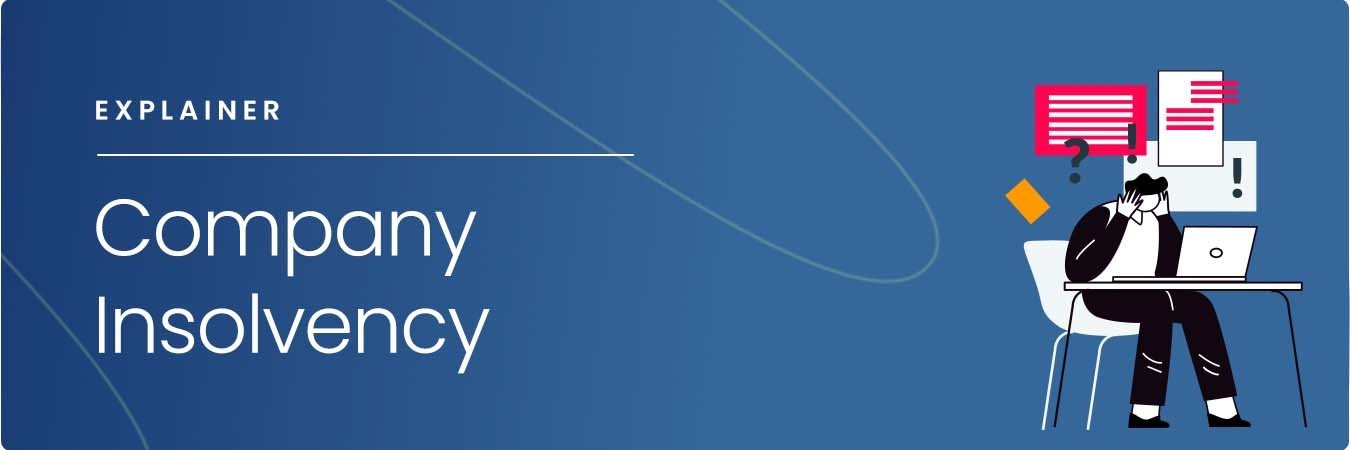Unknown Facts About Insolvency Practitioner
The Definitive Guide to Insolvency Practitioner
Table of ContentsThe Ultimate Guide To Insolvency Practitioner4 Simple Techniques For Insolvency PractitionerThe Definitive Guide to Insolvency PractitionerInsolvency Practitioner - QuestionsThe 8-Second Trick For Insolvency PractitionerThe Definitive Guide for Insolvency PractitionerRumored Buzz on Insolvency Practitioner
Bankruptcy is when responsibilities are greater than the worth of the company, or when a debtor can not pay the financial debts they owe. A company can come to be bankrupt as a result of a number of situations that result in bad cash money circulation. When confronted with bankruptcy, a company or individual can get in touch with lenders straight and restructure financial debts to pay them off.Bankruptcy can bring about bankruptcy process, in which lawsuit will be taken against the financially troubled person or entity, and assets may be liquidated to pay off arrearages. Business owners may contact creditors straight and restructure financial debts right into even more workable installments. Lenders are commonly responsive to this approach because they desire to be paid back and prevent losses, also if the settlement gets on a delayed timetable.
All About Insolvency Practitioner
The owner produces a proposition detailing just how the debt may be restructured utilizing price reductions or other prepare for assistance. The proposition shows lenders how the company may produce enough capital for profitable operations while paying its financial obligations. Commonly, a forgiven financial debt may be considered earnings by the Irs (INTERNAL REVENUE SERVICE).

What Does Insolvency Practitioner Mean?
Business may wind up paying big amounts of money in damages and be unable to proceed procedures. When procedures discontinue, so does the firm's revenue. Absence of earnings leads to unsettled expenses and creditors requesting money owed to them. Some companies become insolvent because their goods or services don't evolve to fit consumers' altering needs.
Costs exceed earnings and bills continue to be unpaid. Cash-flow bankruptcy happens when a business has the assets to cover their financial obligations but they are in the wrong kind, such as real estate rather of fluid funds. Balance-sheet insolvency, on the various other hand, shows a lack of assets in any kind of form to cover financial obligations.
The IRS states that an individual is bankrupt when the total obligations go beyond total assets. A insolvency, on the various other hand, is an actual court order that portrays how a bankrupt individual or organization look at these guys will pay off their lenders, or just how they will certainly sell their assets in order to make the repayments.
Some Known Details About Insolvency Practitioner

Understanding the variables that can bring about bankruptcy, such as overspending, can help you prevent bankruptcy and its repercussions.
The Of Insolvency Practitioner
It is well recognized that directors and police officers of firms (and managers of restricted obligation firms) owe fiduciary obligations to their organizations and their shareholders (or participants). These fiduciary commitments are specified by state laws and, though there are variations from state to state, they typically include an obligation of loyalty and a responsibility of care.
The task of treatment calls for directors and officers to exercise diligence, to make educated decisions, and to act in great confidence so that their actions are in the most effective rate of interest of the business. Though past the extent of this discussion, some states allow these tasks to be limited either by so noting in the organizational papers or abiding by other demands.
The 6-Second Trick For Insolvency Practitioner
Most states specify insolvency in 2 methods( 1) when a company's liabilities become above the sum of its properties or (2) when the firm ends up being not able to pay its financial obligations as they become dueand welcome both definitions (Insolvency Practitioner). The shift in tasks happens because when a business is bankrupt, there is no worth in the company past that owed to the business's financial institutions to ensure that the equity holders no more have a financial stake in the business
Take care concerning offering shareholders favoritism at the expense of creditors (e.g., authorizing and moneying a reward or a stock redemption). Be careful regarding favoritism between courses of investors. Clear up efforts to find out all the realities prior to taking a certain course of activity; directors need to really believe that any kind of decisions made remain in the very best rate of interests of the corporation in its totality (i.e., decisions will be evaluated in hindsight in light of the result of such actions on the firm).
In any type of insolvency or insolvency proceeding, payments made to particular lenders at the expense of other financial institutions can be clawed back, especially if there is some connection in between the company and the financial institution. Take into consideration recommending at an annual shareholder conference (or any special info kind of other conference of stockholders) a resolution verifying that all prior company choices and actions taken by the directors and police officers of the corporation were absorbed excellent faith after an exercise of practical care.
Insolvency Practitioner - The Facts
Fully disclose any individual or business connections with celebrations on the other side of deals including the firm to prevent the look of a problem of passion. In reviewing potential fund raising transactions or a sale of possessions of the troubled corporation, understand that these purchases may be scrutinized later on because of any succeeding growth of supervisors' fiduciary obligations to include financial institutions.